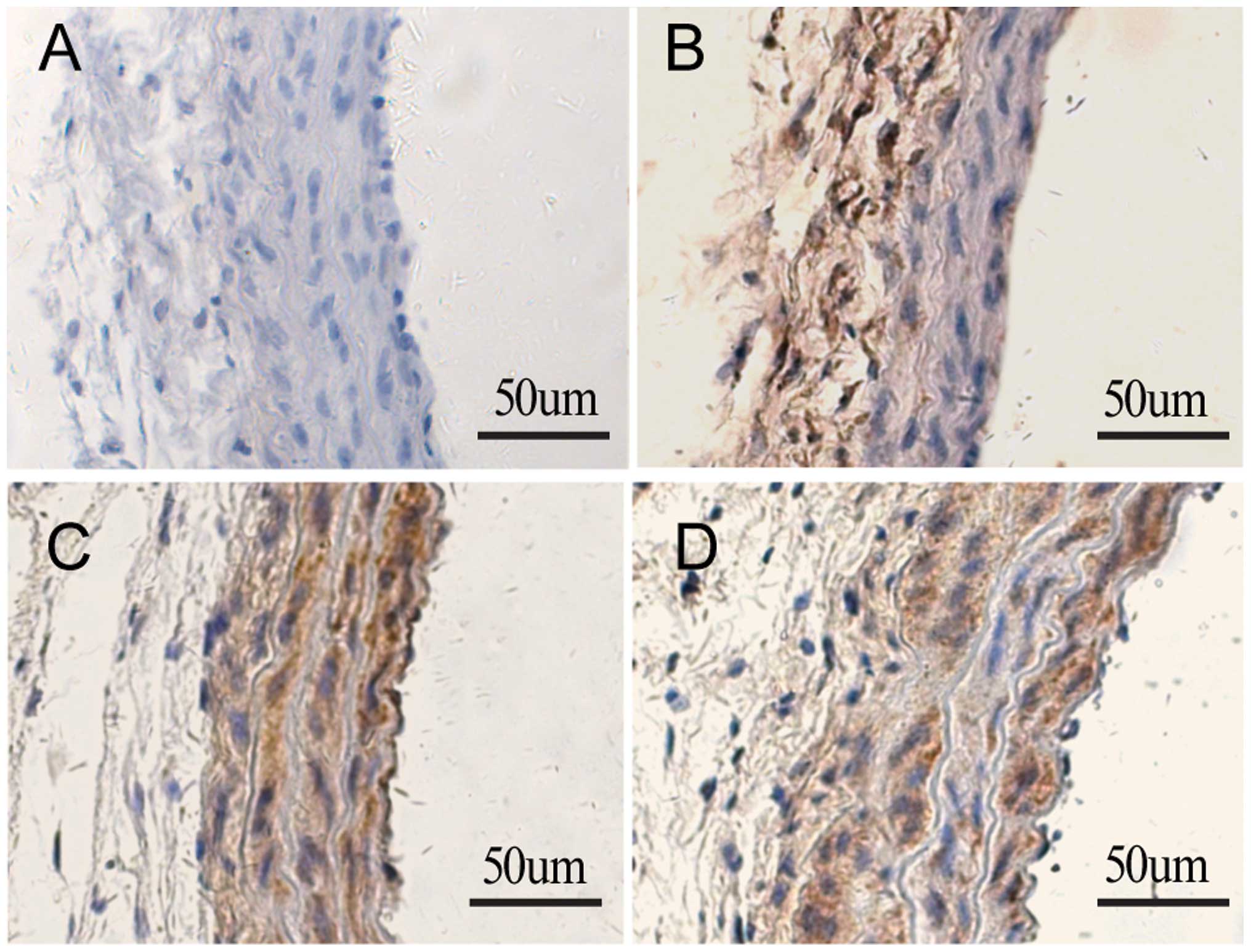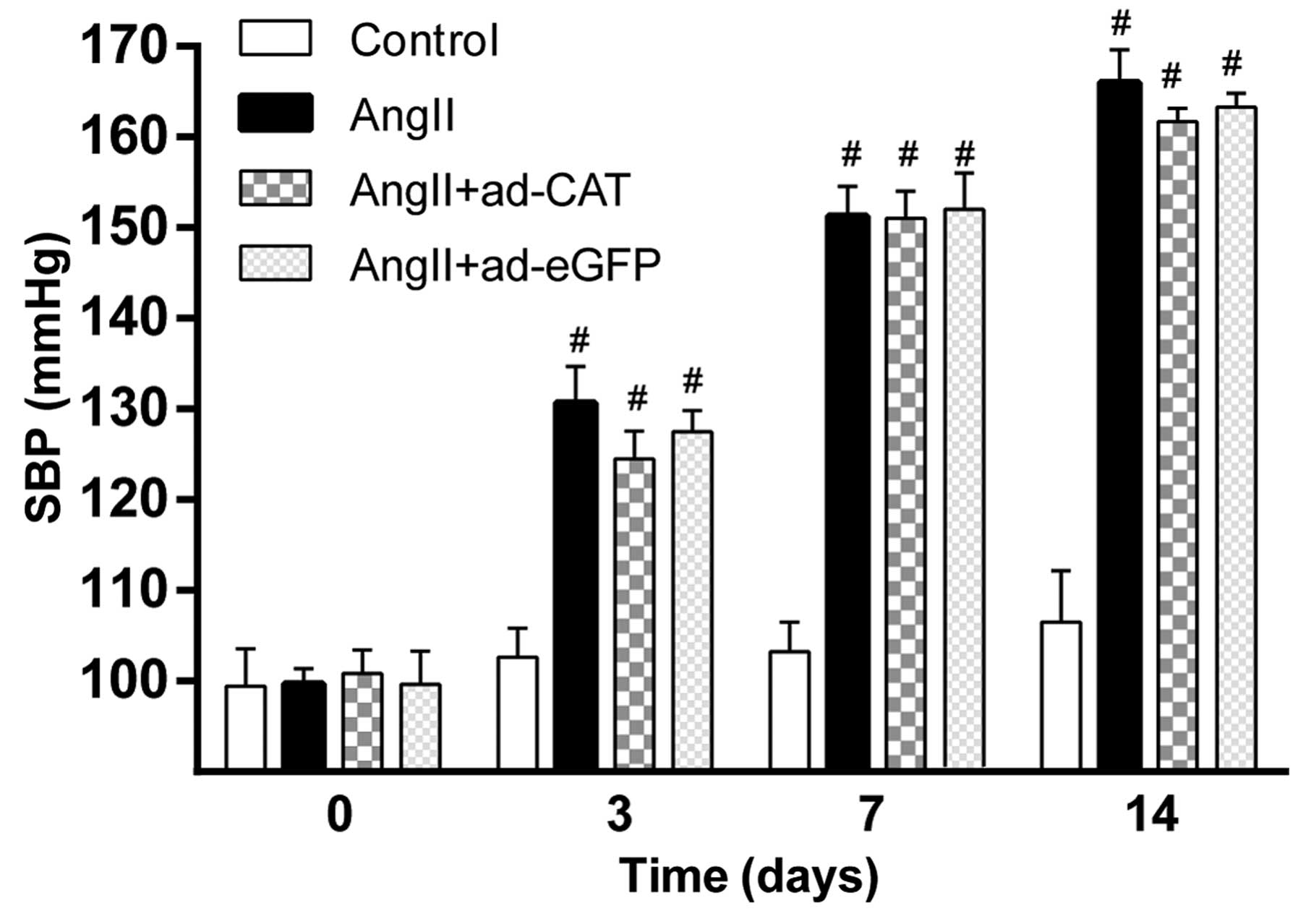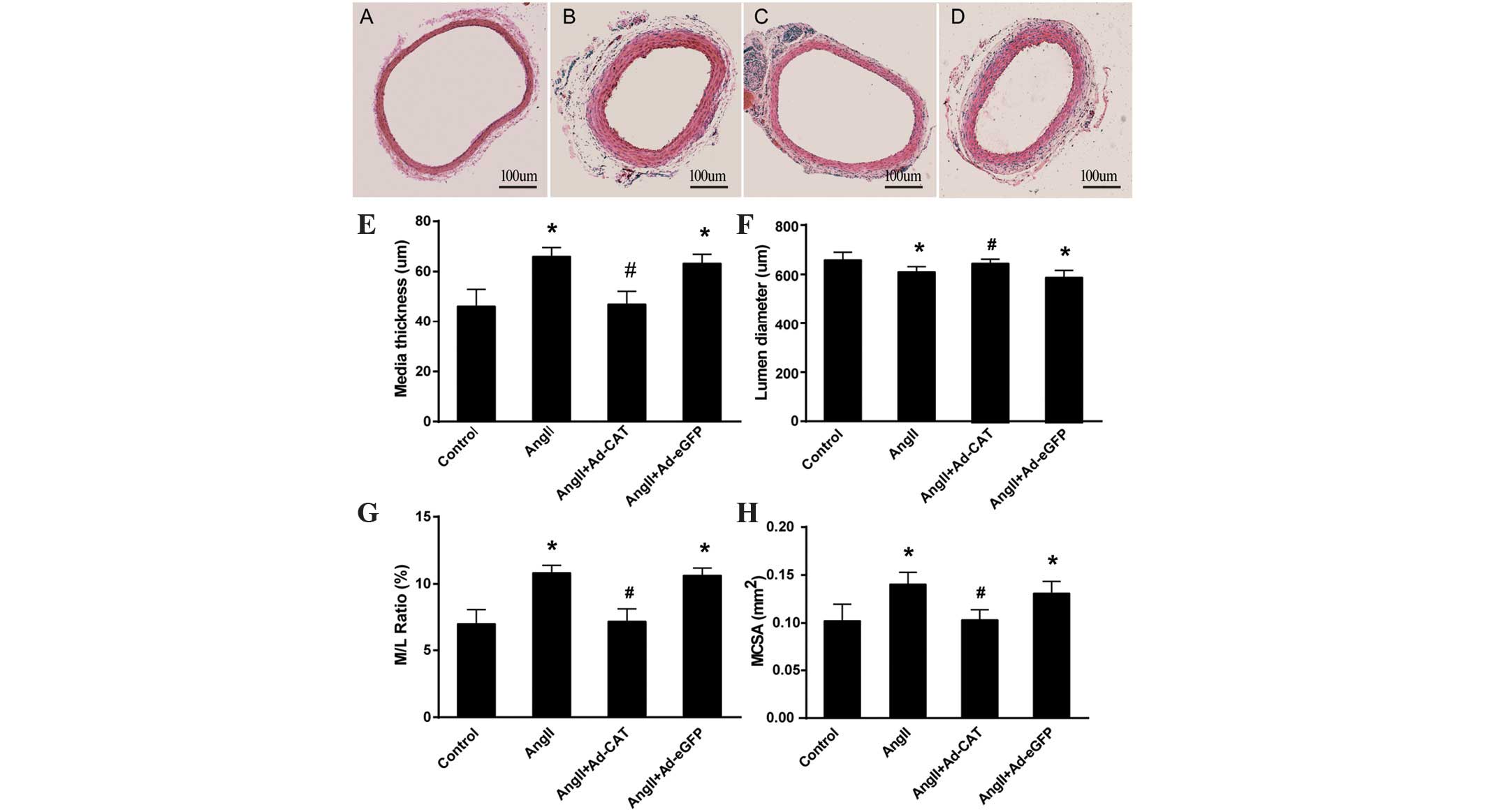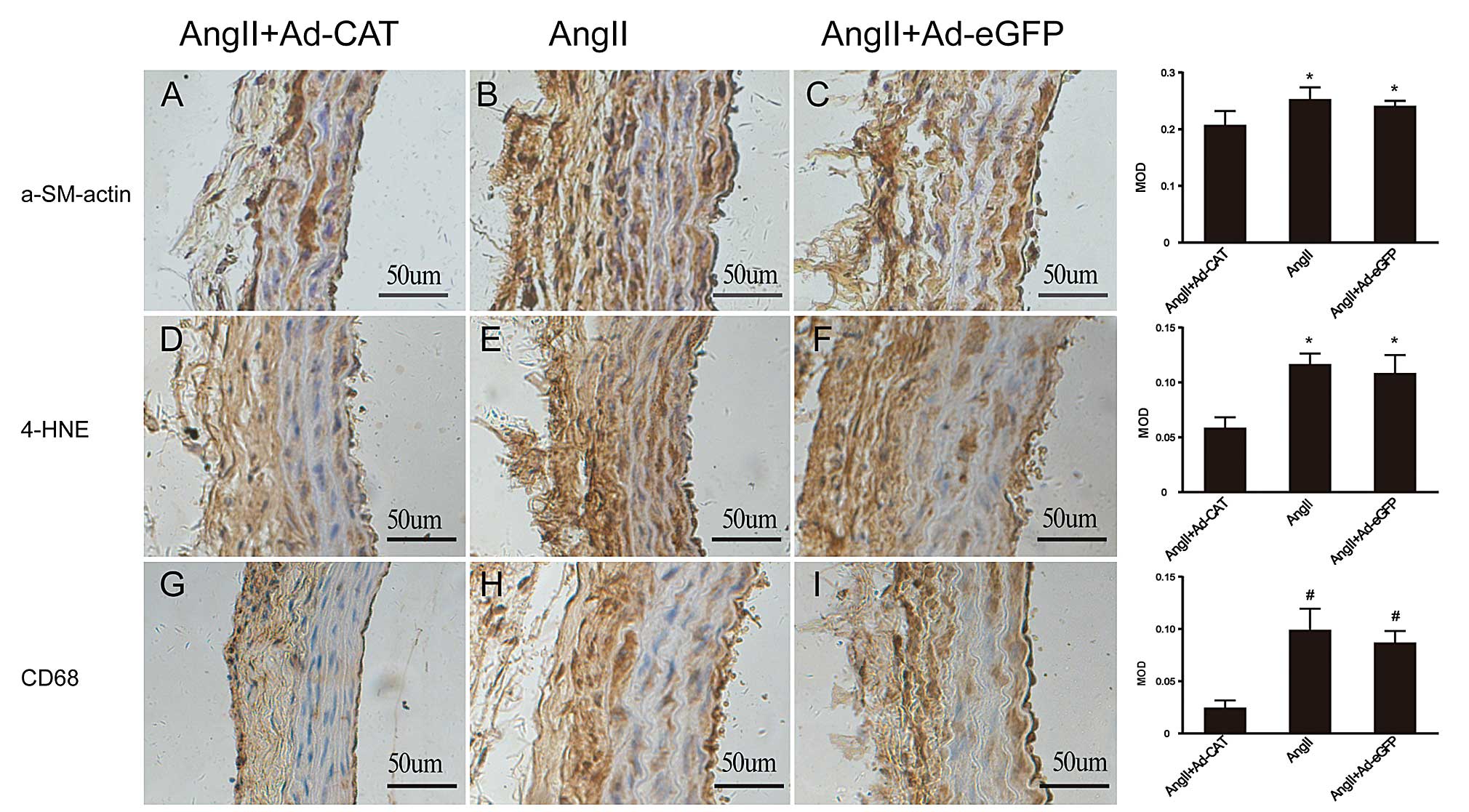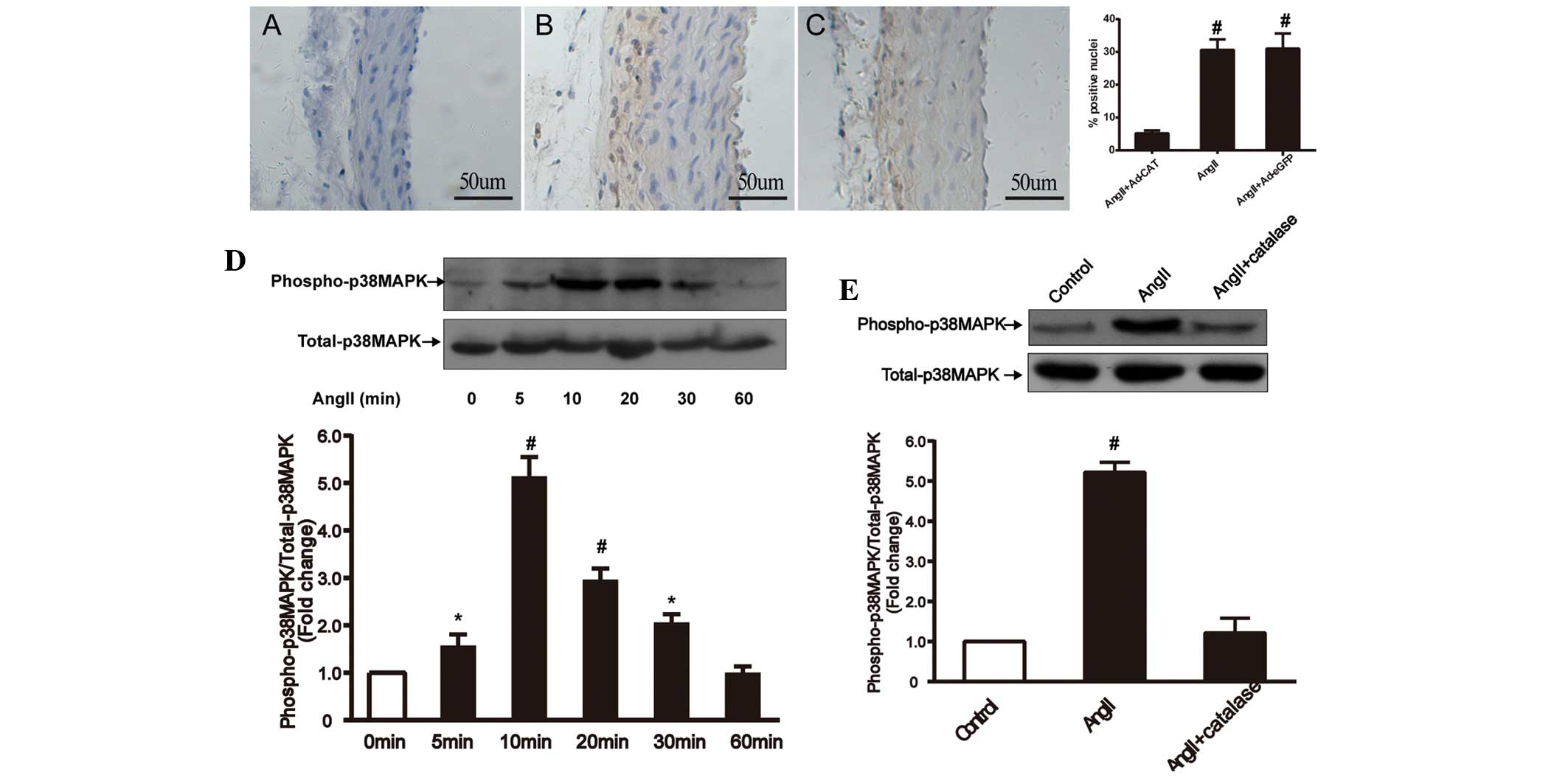|
1
|
Raaz U, Toh R, Maegdefessel L, et al:
Hemodynamic regulation of reactive oxygen species: implications for
vascular diseases. Antioxid Redox Signal. 20:914–928. 2014.
View Article : Google Scholar :
|
|
2
|
Juni RP, Duckers HJ, Vanhoutte PM, Virmani
R and Moens AL: Oxidative stress and pathological changes after
coronary artery interventions. J Am Coll Cardiol. 61:1471–1481.
2013. View Article : Google Scholar : PubMed/NCBI
|
|
3
|
Paravicini TM and Touyz RM: Redox
signaling in hypertension. Cardiovasc Res. 71:247–258. 2006.
View Article : Google Scholar : PubMed/NCBI
|
|
4
|
Clempus RE and Griendling KK: Reactive
oxygen species signaling in vascular smooth muscle cells. Cardiovas
Res. 71:216–225. 2006. View Article : Google Scholar
|
|
5
|
Schulz E, Gori T and Münzel T: Oxidative
stress and endothelial dysfunction in hypertension. Hypertens Res.
34:665–673. 2011. View Article : Google Scholar : PubMed/NCBI
|
|
6
|
Stenmark KR, Yeager ME, El Kasmi KC, et
al: The adventitia: essential regulator of vascular wall structure
and function. Annu Rev Physiol. 75:23–47. 2013. View Article : Google Scholar :
|
|
7
|
Sartore S, Chiavegato A, Faggin E, et al:
Contribution of adventitial fibroblasts to neointima formation and
vascular remodeling: from innocent bystander to active participant.
Circ Res. 89:1111–1121. 2001. View Article : Google Scholar : PubMed/NCBI
|
|
8
|
Liu J, Ormsby A, Oja-Tebbe N and Pagano
PJ: Gene transfer of NAD (P) H oxidase inhibitor to the vascular
adventitia attenuates medial smooth muscle hypertrophy. Circ Res.
95:587–594. 2004. View Article : Google Scholar : PubMed/NCBI
|
|
9
|
Tieu BC, Ju X, Lee C, et al: Aortic
adventitial fibroblasts participate in angiotensin-induced vascular
wall inflammation and remodeling. J Vasc Res. 48:261–272. 2011.
View Article : Google Scholar
|
|
10
|
Pagano PJ, Chanock SJ, Siwik DA, Colucci
WS and Clark JK: Angiotensin II induces p67phox mRNA expression and
NADPH oxidase superoxide generation in rabbit aortic adventitial
fibroblasts. Hypertension. 32:331–337. 1998. View Article : Google Scholar : PubMed/NCBI
|
|
11
|
Yang W, Zhang J, Wang H, et al:
Angiotensin II downregulates catalase expression and activity in
vascular adventitial fibroblasts through an AT1R/ERK1/2-dependent
pathway. Mol Cell Biochem. 358:21–29. 2011. View Article : Google Scholar : PubMed/NCBI
|
|
12
|
Schneider DB, Sassani AB, Vassalli G,
Driscoll RM and Dichek DA: Adventitial delivery minimizes the
proinflammatory effects of adenoviral vectors. J Vasc Surg.
29:543–550. 1999. View Article : Google Scholar : PubMed/NCBI
|
|
13
|
Laitinen M and Yla-Herttuala S:
Adventitial gene transfer to arterial wall. Pharmacol Res.
37:251–254. 1998. View Article : Google Scholar : PubMed/NCBI
|
|
14
|
Dourron HM, Jacobson GM, Park JL, et al:
Perivascular gene transfer of NADPH oxidase inhibitor suppresses
angioplasty-induced neointimal proliferation of rat carotid artery.
Am J Physiol Heart Circ Physiol. 288:H946–H953. 2005. View Article : Google Scholar
|
|
15
|
Ozumi K, Tasaki H, Takatsu H, et al:
Extracellular superoxide dismutase overexpression reduces
cuff-induced arterial neointimal formation. Atherosclerosis.
181:55–62. 2005. View Article : Google Scholar : PubMed/NCBI
|
|
16
|
Tollefson AE, Kuppuswamy M, Shashkova EV,
Doronin K and Wold WS: Preparation and titration of CsCl-banded
adenovirus stocks. Methods Mol Med. 130:223–235. 2007.PubMed/NCBI
|
|
17
|
Ducharme A, Frantz S, Aikawa M, et al:
Targeted deletion of matrix metalloproteinase-9 attenuates left
ventricular enlargement and collagen accumulation after
experimental myocardial infarction. J Clin Invest. 106:55–62. 2000.
View Article : Google Scholar : PubMed/NCBI
|
|
18
|
Siow RC, Mallawaarachchi CM and Weissberg
PL: Migration of adventitial myofibroblasts following vascular
balloon injury: insights from in vivo gene transfer to rat carotid
arteries. Cardiovasc Res. 59:212–221. 2003. View Article : Google Scholar : PubMed/NCBI
|
|
19
|
Chan SH, Hsu KS, Huang CC, Wang LL, Ou CC
and Chan JY: NADPH oxidase-derived superoxide anion mediates
angiotensin II-induced pressor effect via activation of p38
mitogen-activated protein kinase in the rostral ventrolateral
medulla. Circ Res. 97:772–780. 2005. View Article : Google Scholar : PubMed/NCBI
|
|
20
|
Ushio-Fukai M, Alexander RW, Akers M and
Griendling KK: P38 mitogen-activated protein kinase is a critical
component of the redox-sensitive signaling pathways activated by
angiotensin II. Role in vascular smooth muscle cell hypertrophy. J
Biol Chem. 273:15022–15029. 1998. View Article : Google Scholar : PubMed/NCBI
|
|
21
|
Di Wang H, Rätsep MT, Chapman A and Boyd
R: Adventitial fibroblasts in vascular structure and function: the
role of oxidative stress and beyond. Can J Physiol and Pharmacol.
88:177–186. 2010. View
Article : Google Scholar
|
|
22
|
Havelka GE and Kibbe MR: The vascular
adventitia: its role in the arterial injury response. Vasc
Endovascular Surg. 45:381–390. 2011. View Article : Google Scholar : PubMed/NCBI
|
|
23
|
Shi Y, O’Brien JE, Fard A, Mannion JD,
Wang D and Zalewski A: Adventitial myofibroblasts contribute to
neointimal formation in injured porcine coronary arteries.
Circulation. 94:1655–1664. 1996. View Article : Google Scholar : PubMed/NCBI
|
|
24
|
Haurani MJ and Pagano PJ: Adventitial
fibroblast reactive oxygen species as autacrine and paracrine
mediators of remodeling: bellwether for vascular disease?
Cardiovasc Res. 75:679–689. 2007. View Article : Google Scholar : PubMed/NCBI
|
|
25
|
Di Wang H, Hope S, Du Y, et al: Paracrine
role of adventitial superoxide anion in mediating spontaneous tone
of the isolated rat aorta in angiotensin II-induced hypertension.
Hypertension. 33:1225–1232. 1999. View Article : Google Scholar : PubMed/NCBI
|
|
26
|
Bishop JE and Lindahl G: Regulation of
cardiovascular collagen synthesis by mechanical load. Cardiovasc
Res. 42:27–44. 1999. View Article : Google Scholar : PubMed/NCBI
|
|
27
|
Al Ghouleh I, Khoo NK, Knaus UG, et al:
Oxidases and peroxidases in cardiovascular and lung disease: new
concepts in reactive oxygen species signaling. Free Radic Biol Med.
51:1271–1288. 2011. View Article : Google Scholar : PubMed/NCBI
|
|
28
|
Weaver M, Liu J, Pimentel D, et al:
Adventitial delivery of dominant-negative p67phox attenuates
neointimal hyperplasia of the rat carotid artery. Am J Physiol
Heart Circ Physiol. 290:H1933–H1941. 2006. View Article : Google Scholar : PubMed/NCBI
|
|
29
|
Mallawaarachchi CM, Weissberg PL and Siow
RC: Smad7 gene transfer attenuates adventitial cell migration and
vascular remodeling after balloon injury. Arterioscler Thromb Vasc
Biol. 25:1383–1387. 2005. View Article : Google Scholar : PubMed/NCBI
|
|
30
|
Siow RC and Churchman AT: Adventitial
growth factor signalling and vascular remodelling: potential of
perivascular gene transfer from the outside-in. Cardiovasc Res.
75:659–668. 2007. View Article : Google Scholar : PubMed/NCBI
|
|
31
|
Maiellaro K and Taylor WR: The role of the
adventitia in vascular inflammation. Cardiovasc Res. 75:640–648.
2007. View Article : Google Scholar : PubMed/NCBI
|
|
32
|
Okamoto E, Couse T, De Leon H, et al:
Perivascular inflammation after balloon angioplasty of porcine
coronary arteries. Circulation. 104:2228–2235. 2001. View Article : Google Scholar : PubMed/NCBI
|
|
33
|
Cascino T, Csanyi G, Al Ghouleh I, et al:
Adventitia-derived hydrogen peroxide impairs relaxation of the rat
carotid artery via smooth muscle cell p38 mitogen-activated protein
kinase. Antioxid Redox Signal. 15:1507–1515. 2011. View Article : Google Scholar :
|















